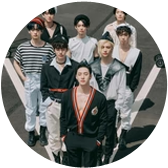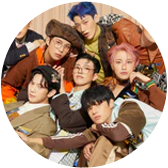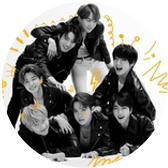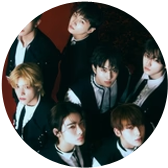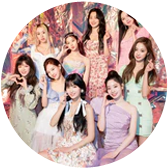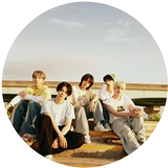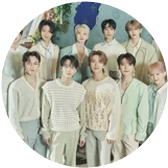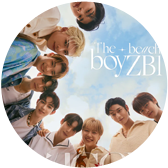4th Generation of K-Pop Idols Explained: 2019-2023
Discover the 4th Generation of K-pop idols (2019-2023), spotlighting groups like ATEEZ, Stray Kids, and aespa redefining K-pop with global impact.
4th Generation of K-Pop Explained: 2019-2023
When it comes to K-Pop, you'll often hear about the "generations" that categorize different groups. We've already gone into detail about what these generations mean in a previous blog post. If you missed that article or just want to refresh your memory, you're in the right place!
K-Pop, an ever-evolving genre of music and entertainment, has seen several transformative phases since its inception. As we delve into the 4th Generation of K-Pop, which spans from 2019 to the present, we uncover a period marked by profound shifts in musical styles, global influence, and industry dynamics. This blog post explores when the 4th generation kpop idols began and what defines it, the influence of the global pandemic, the key agencies driving this era, and the intense competitiveness that characterizes this generation.
When Did the 4th Generation Begin and End?
The term "4th Generation of K-Pop" generally refers to the period starting in 2019, following the conclusion of the 3rd Generation. Unlike previous transitions, the start of the 4th Generation is less about a specific date and more about the emergence of new trends, groups, and shifts in the industry.
2019 is widely recognized as the beginning of the 4th Generation, marked by the debut of several notable groups that introduced fresh sounds and concepts. Among these, TXT (Tomorrow X Together), under Big Hit Entertainment (now known as HYBE Corporation), and ITZY, under JYP Entertainment, stand out as pivotal acts that helped define the new era. Their debuts signaled a shift towards more experimental sounds and innovative concepts that would characterize the 4th generation kpop idols.
While the 4th Generation is still ongoing, its end is not yet clearly defined. However, signs of a transition towards the next generation may become evident as new trends and groups emerge. The current generation's end may be marked by a significant shift in musical trends, industry dynamics, or the debut of groundbreaking new acts that push the boundaries of K-Pop. With current trends a 5th generation of kpop is emerging from 2023 with the debut of groups such as RIIZE, ZEROBASEONE, Xikers, BOYNEXTDOOR, ILLIT, BABYMONSTER, and more.
What Defines the 4th Generation?
The 4th Generation of K-Pop is distinguished by several key characteristics that set it apart from its predecessors:
-
Digital Savvy and Social Media Influence: The 4th generation kpop idols is defined by its adept use of digital platforms and social media. Unlike previous generations, which saw the rise of social media, this era has fully embraced it as a central component of promotion and fan engagement. Platforms like TikTok have become crucial for music promotion and viral challenges, helping groups reach global audiences with unprecedented speed.
-
Diverse Musical Styles and Concepts: The 4th Generation is marked by its eclectic musical styles and concepts. Groups are experimenting with genres beyond traditional K-Pop, including alternative, indie, and electronic influences. This diversity reflects a broader acceptance of global music trends and a desire to push creative boundaries.
-
Increased Global Reach: The global expansion of K-Pop has accelerated in the 4th Generation, with groups achieving significant international success and recognition. The global pandemic, in particular, highlighted the genre's resilience and adaptability, as artists found new ways to connect with fans worldwide.
-
Innovative Use of Technology: Technology plays a crucial role in this generation, with advancements such as virtual concerts, augmented reality (AR) experiences, and interactive fan events becoming more common. These innovations not only enhance the fan experience but also create new revenue streams and opportunities for artists.
-
Focus on Individuality and Authenticity: There is a strong emphasis on individuality and authenticity in the 4th Generation. Groups and artists are encouraged to showcase their unique personalities and talents, moving away from the more uniform concepts of previous generations. This focus on authenticity resonates with a global audience seeking genuine connections with their idols.
Influence of the Global Pandemic
The COVID-19 pandemic had a profound impact on the 4th generation kpop idols, reshaping how artists and fans interact and how the industry operates:

-
Virtual Concerts and Live Streams: With physical concerts and events largely restricted, virtual concerts became a major trend. Companies and artists embraced online platforms to perform live shows, hold fan meetings, and engage with their audience. These virtual events not only provided a way for fans to connect with their favorite artists but also showcased the industry's adaptability and innovation.
-
Increased Focus on Digital Content: The pandemic accelerated the production of digital content, including music videos, reality shows, and behind-the-scenes footage. With fans unable to attend live events, content consumption shifted online, leading to a surge in video streaming and social media engagement.
-
Global Collaboration and Fan Engagement: The global nature of the pandemic emphasized the importance of international fan engagement. Artists and agencies expanded their outreach to global audiences, collaborating with international artists and participating in global campaigns. This increased global interaction helped solidify K-Pop's position as a global phenomenon.
-
Adaptation to Changing Industry Dynamics: The pandemic highlighted the need for flexibility and adaptability within the industry. Agencies and artists had to navigate new challenges, including changes in marketing strategies, revenue models, and fan interactions. The ability to adapt quickly became a crucial factor in maintaining success during this period.
Key Agencies of the 4th Generation
Several key agencies have played a significant role in shaping the 4th Generation of K-Pop. These companies are known for their innovative approaches, successful debuts, and contributions to the genre:

-
HYBE Corporation: Formerly known as Big Hit Entertainment, HYBE Corporation has continued its dominance with the success of TXT and ENHYPEN. The company's innovative approach to artist management and global expansion has solidified its position as a major player in the 4th generation kpop idols.
-
JYP Entertainment: JYP remains a key player with the debut of ITZY, a group that has gained widespread acclaim for its energetic performances and empowering concepts. The agency's commitment to fostering new talent and its strategic use of digital platforms have contributed to its continued success.
-
SM Entertainment: SM Entertainment, known for its influential role in previous generations, has maintained its relevance with the debut of aespa. The group, known for its unique concept blending virtual and real-world elements, exemplifies the agency's ability to innovate and adapt to new trends.
-
YG Entertainment: YG Entertainment has made a notable impact with the debut of TREASURE, a group that showcases the agency's continued focus on high-quality production and global appeal. Despite facing challenges in recent years, YG remains a significant force in the industry.
-
CUBE Entertainment: CUBE Entertainment has gained recognition with the debut of (G)I-DLE, a group known for its self-produced music and strong stage presence. The agency's emphasis on creative control and individuality aligns with the trends of the 4th Generation.
-
FNC Entertainment: FNC Entertainment, known for groups like CNBLUE and AOA, has continued to be relevant in the 4th generation with new acts like SF9 and P1HARMONY. Their focus on diverse music styles and dynamic performances contributes to the variety within the 4th generation.
-
KQ Entertainment: KQ Entertinment has emerged as a notable agency in the 4th generation of K-pop, gaining recognition for its flagship group, ATEEZ. KQ Entertainment’s success with ATEEZ underscores its role as a key player in the 4th generation, demonstrating the agency's ability to cultivate and promote talent effectively.
Competitiveness of the 4th Generation
The 4th generation kpop idols is characterized by intense competitiveness, driven by several factors:

-
High Stakes and Expectations: The pressure to succeed is higher than ever, with both fans and industry insiders placing significant expectations on new groups. The success of debuting acts can significantly impact their future prospects, leading to a highly competitive environment.
-
Global Market Saturation: The expansion of K-Pop into global markets has led to increased competition, with more groups vying for international attention. The crowded market requires groups to distinguish themselves through unique concepts, musical styles, and marketing strategies.
-
Innovation and Creativity: To stand out in a saturated market, groups are constantly pushing the boundaries of creativity and innovation. This includes experimenting with new sounds, concepts, and technologies to capture the attention of both domestic and international audiences.
-
Fan Engagement and Loyalty: 4th generation kpop idols, fan engagement has become a critical factor in a group's success. Agencies and artists invest heavily in building strong connections with their fans through interactive content, personalized experiences, and fan-driven campaigns. The ability to maintain fan loyalty and engagement is a key competitive advantage.
-
Digital Influence and Virality: The rise of social media and digital platforms has increased the importance of viral marketing and online presence. Groups that effectively leverage these platforms to generate buzz and connect with fans are better positioned to achieve success in the competitive landscape.
Notable Debuts of the 4th Generation
1. ATEEZ
-
Debut Date: October 24, 2018
-
Agency: KQ Entertainment
- ATEEZ debuted just before the official start of the 4th generation but has become a defining group of this era. Known for their high-energy performances and adventurous concepts, ATEEZ has made significant international inroads, gaining a global fanbase and establishing themselves as a major force in the 4th generation.
2. TXT (TOMORROW X TOGETHER)
-
Debut Date: March 4, 2019
-
Agency: Big Hit Entertainment (now HYBE Corporation)
- TXT is one of the most prominent 4th generation boy groups. Their debut marked Big Hit’s expansion beyond BTS, and they quickly garnered attention for their innovative music and engaging concepts. TXT's success is reflected in their impressive chart performances and international popularity.
3. ITZY
-
Debut Date: February 12, 2019
-
Agency: JYP Entertainment
- ITZY burst onto the scene with their powerful and energetic concept, emphasizing themes of self-confidence and empowerment. Their debut single “DALLA DALLA” was a commercial success, establishing ITZY as a leading girl group in the 4th generation.
4. (G)I-DLE
-
Debut Date: May 2, 2018
-
Agency: CUBE Entertainment
- Though (G)I-DLE debuted slightly before the official start of the 4th generation kpop idols, they have had a significant impact during this era. Their unique concepts and musical diversity have helped them stand out, and they have gained substantial international recognition.
5. ENHYPEN
-
Debut Date: November 30, 2020
-
Agency: Belift Lab (a joint venture between HYBE Corporation and CJ ENM)
- Formed through the survival show “I-LAND,” ENHYPEN quickly made a name for themselves with their captivating performances and intriguing concepts. Their debut album was highly successful, and they have rapidly gained a strong international following.
6. TREASURE
-
Debut Date: August 7, 2020
-
Agency: YG Entertainment
- TREASURE was formed through the reality show “YG Treasure Box” and represents YG Entertainment’s efforts to reestablish its dominance in the 4th generation. Known for their energetic performances and fresh sound, TREASURE has been making waves both domestically and internationally.
7. STAYC
-
Debut Date: November 12, 2020
-
Agency: High Up Entertainment
- STAYC is known for their vibrant and youthful image, with their debut single “SO BAD” receiving positive reception for its catchy hooks and energetic style. The group has quickly made a name for themselves with their fresh concepts and engaging performances.
8. WEEEKLY
-
Debut Date: June 30, 2020
-
Agency: Play M Entertainment
- WEEEKLY debuted with a youthful and playful concept, which resonated well with audiences. Their debut single “Tag Me (@Me)” highlighted their energetic and fun style, contributing to their rising popularity of 4th generation kpop idols.
9. Kep1er
-
Debut Date: January 3, 2022
-
Agency: Wake One Entertainment and CUBE Entertainment
- Formed through the survival show “Girls Planet 999,” Kep1er’s debut marked the start of their journey in the 4th generation. Known for their strong performances and diverse concepts, they have quickly attracted attention and built a solid fanbase.
Bands that Belong to the 4th Generation
BOY GROUPS:
GIRL GROUPS:
The 4th generation kpop idols, spanning from 2019 to the present, represents a dynamic and transformative era in the genre's history. Defined by its digital savvy, diverse musical styles, and global reach, this generation has been shaped by the impact of the global pandemic and the evolving industry landscape. Key agencies have continued to drive innovation and success, while the intense competitiveness of the era has pushed artists to new heights of creativity and engagement. As we look towards the future, the 4th Generation's influence will undoubtedly continue to shape the world of K-Pop, setting the stage for the next evolution of this vibrant and ever-changing industry.




